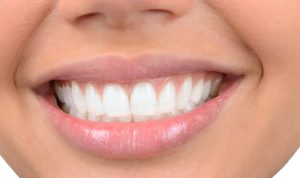What Carbonation Does to Your Teeth
July 5, 2018Mouthguards: Do You Need One?
July 19, 2018Are you suffering from weakened, soft tooth enamel? There are steps you can take to help halt future erosion and strengthen your smile. These steps have to do with eating, drinking, the dental products you use, your oral hygiene, and revamping your diet to help you have better oral health. Use these recommendations for strengthening your soft tooth enamel!
The Structure and Strength of Teeth
The teeth are composed of almost pure mineral (96%) and are the hardest substance in the body. This is why many people can chew on nuts and other hard foods without breaking teeth. On average, the molars can take up to about 250 pounds of pressure when biting, even though the teeth rarely need to bite down this hard. Some people have been recording as being able to bite down with up to 270 pounds of pressure. However, not everyone has incredibly hard teeth. Sometimes, the teeth don’t form as strong when a baby is growing in the womb. Or, genetics and oral health habits can lead a person to have soft tooth enamel. This then leads to frequent problems with tooth decay, tooth breaks, tooth loss and more. Knowing that you have soft tooth enamel can help dictate what you do with your teeth and how well you can build them back up.
What Is Soft Tooth Enamel?
Your tooth enamel is not your entire tooth, but the outer, hard layer of your teeth. Inside your tooth you have a slightly softer layer (but still hard) called the dentin. In the very center of your tooth you have a small, soft center with nerves and blood vessels. Your tooth enamel takes up a lot of your tooth and is very strong to withstand decay and breakage. It’s strong because your teeth took up minerals as you grew in the womb, and made hard, mineral areas in your jaws that became teeth.
All throughout your life, your teeth draw minerals from the foods and drinks you ingest. When you drink milk, for example, some of the calcium and phosphorus in the milk will add to your teeth, remineralizing them.. Your teeth build themselves up every day, but this is because foods and drinks, poor oral hygiene, and habits such as drinking soda or smoking break down your tooth enamel. This is why many people have soft tooth enamel.
So what can you do if you have soft tooth enamel?
- Avoid foods and drinks that demineralize tooth enamel.
- Add remineralizing products to your routine.
- Choose a remineralizing diet and eat well.
- Brush your teeth every single day.
Foods and Drinks
Many foods and drinks will erode your tooth enamel if you’re not careful. Ones that are the biggest culprits are citrus drinks that contain citric acid, and carbonated beverages, which contain carbonic acid. No acid is good for the teeth, yet acids are found in foods and many beverages. You always have to check food labels to know if your drink or food contains acid in it. Even sparkling water can lead to soft tooth enamel.
When you have food acids in your mouth, they eat away at the hard, outer shell of your teeth. This acid breaks down the minerals that make up your teeth, taking some of that mineral content away. Teeth can thin out over time and can get decay much more easily, especially if you eat or drink acidic foods every day. To combat this, choose water and milk over carbonated drinks and foods. If you must drink sodas or juices, use a straw to minimize the acid’s contact with your teeth. Then, wait 20-30 minutes before brushing your teeth.
Acid tends to stick around on the tooth surface for about that amount of time, working to separate out and demineralize the minerals on your teeth. If you brush your teeth, you brush away all that layer of acid along with some tooth enamel.
Strengthening and Remineralizing Teeth
Your teeth are made up of minerals such as calcium and phosphorus. Eating dairy products can provide your teeth (and your body) with these minerals. Taking a vitamin supplement and using dental products with products such as fluoride can help remineralize and strengthen your teeth. Fluoride is a naturally-occurring mineral that is found in most public water sources in the United States. It’s also found in many dental toothpastes and other products. Drinking water and using these products can help combat problems with soft tooth enamel.
Eating Well
The better you eat, the better your oral health and your overall health will be. The mouth is a window to the rest of your body. The better things you put in it, the more your body will thank you. Sugar is one of the worst things for your teeth and for your health. Too much sugar leads to obesity, diabetes, heart disease, mood disorders and more. Sugar also decays your teeth and leads to soft tooth enamel because sugar is the food that bacteria mixes with to make plaque. The more sugar you eat, the more plaque your mouth makes, and the more your teeth decay. Avoid that as well as soft tooth enamel by eating well.
Brush Your Teeth!
One of the best things you can do for your tooth enamel is to brush it every single day. The American Dental Association recommends brushing your teeth at least twice a day. Why? Plaque is made in your mouth every time you eat. If you don’t brush it away, it sits on your teeth. Plaque is also acidic in nature, so that acid breaks down the minerals in your teeth, leading to cavities, soft tooth enamel and more. Start with brushing your teeth at least twice a day. Floss your teeth 1-2 times. Then, make sure you are seeing your dentist at least twice a year for comprehensive exams and dental cleanings. You can schedule one of these services today by calling Family & Cosmetic Dentistry of the Rockies at (970) 267-0993!







